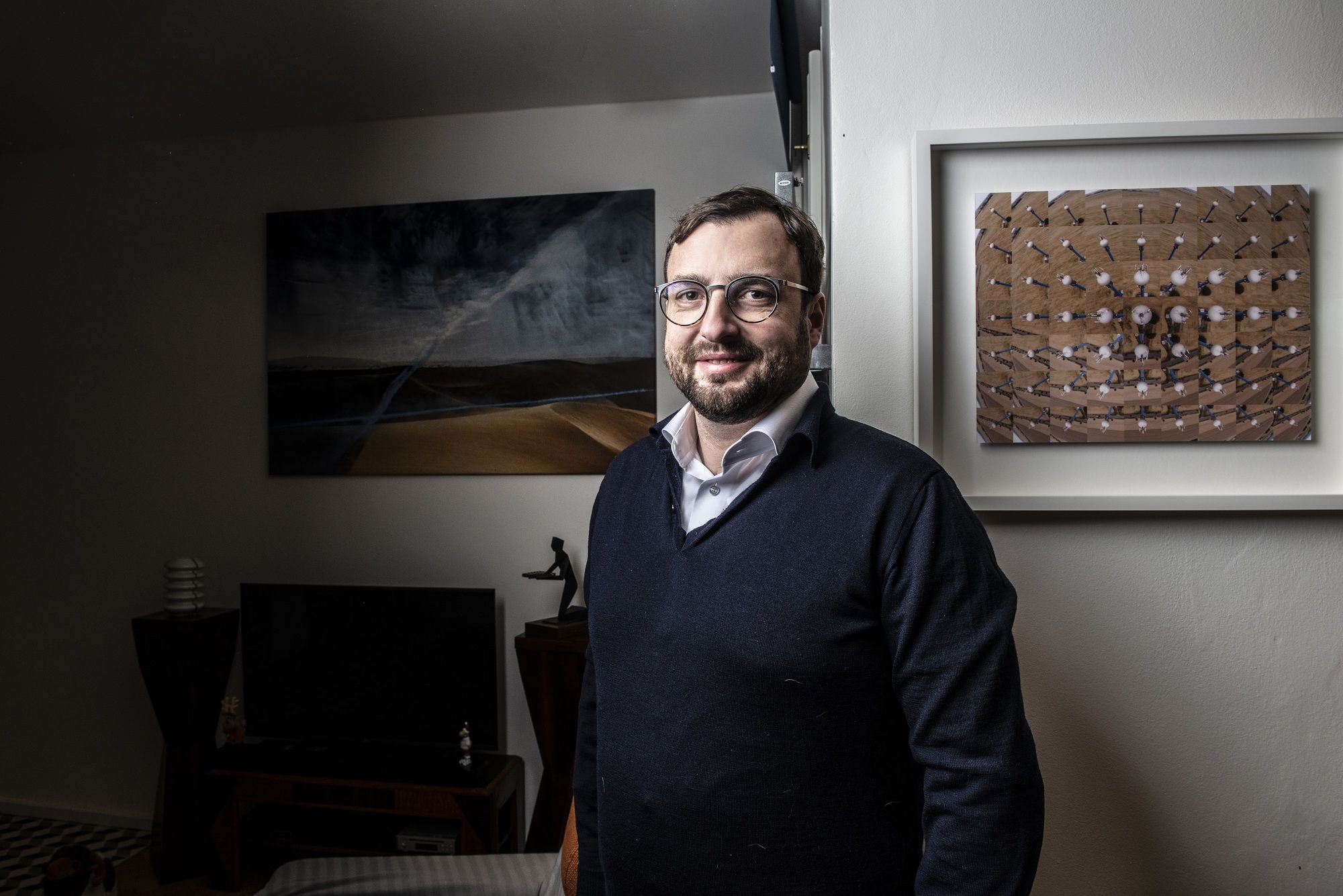Václav Nekvapil and his journey of collection

“Although it might sound trivial, the most important factor is that you actually like the work. There is absolutely no point in investing in something you feel nothing for simply because you hope that its value will be significantly higher one day,” says the head of the Czech branch of the CEC Group international consulting firm.
Václav Nekvapil has been surrounded by works of art since he was a child, coming as he does from a Prague burgher family in which art was ever-present. “Mainly older art. I was lagging behind in terms of modern and contemporary art and felt the need to find my way around better,” Václav explains. So he began going to traditional museums and private galleries, also taking inspiration from his friends.
The past year also saw him complete the EduArt Start programme for prospective collectors. “The art market is an entirely new and fascinating area for me and it really is very interesting to see how the entire ecosystem works or which factors determine the importance of different artists and the price of their works. This is now clear to me after the programme. And as trivial as it may sound, the most important factor is that you actually like the work. There is absolutely no point in investing in something you feel nothing for simply because you hope its value will be significantly higher one day.”
Václav is also of the view that one other criterion for buying a work of art is the stage of the artist’s life at the time. If, for example, the artist is a 60-year old with only a few regional exhibitions in the Czech Republic under his belt, his work will probably not have any great potential as far as an increase in value is concerned. On the contrary, it is a good sign if the artist’s work can be seen in foreign galleries and private collections.
“It is, of course, also good to know that my work is gaining in value. If, for example, I buy a painting for ten thousand from a fresh art-school graduate that has only staged a few exhibitions, it would certainly be pleasing to discover after ten years or so that the prices of that artist’s works have climbed much higher. If not, then at least I have something I actually like at home or in the office,” Václav says in explaining how he views his current collection, adding: “Although I honestly cannot imagine selling any of my paintings and cashing them in. I still have places to put the works I have bought, so I am not even considering selling at all yet.”
In the future, Václav is not opposed to supporting the link between art and modern technology, which he believes will find its own place on the market. He is therefore continuing his education in how the art market works, one way of helping him on his way being the six-month EduArt Roadshow programme, in which a small group of advanced collectors visits art studios throughout the country and discusses different approaches to collecting.
The next EduArt Start programme begins on 19 April. For more information about the EduArt Roadshow programme, please write to info@eduartexperience.com.